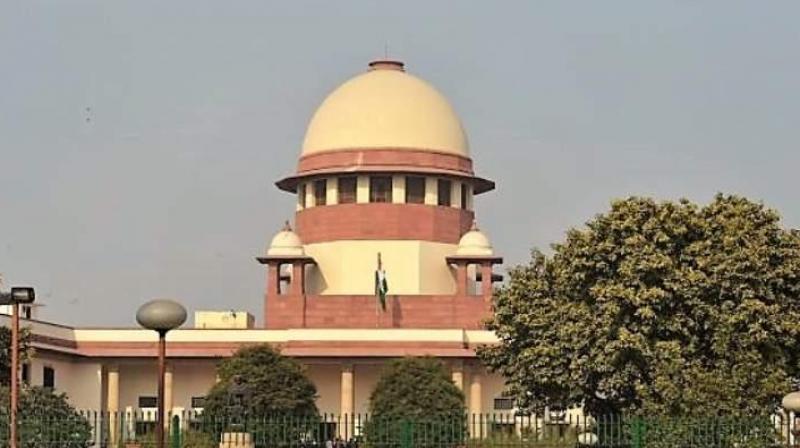Pavan K. Varma | Contempt, sedition: We need a more open mind

At the end of this month, Ashok Lavasa, one of India’s election commissioners, will prepare to depart for the sunny shores of Manila to join the Asian Development Bank. His term at the Election Commission was not over.
In fact, he would have become, by virtue of seniority, the chief election commissioner, and overseen the conduct of the 2024 parliamentary elections.
Why is he then leaving one of the most responsible and prestigious assignments in his own country, and the prospect of eventually heading the EC, for the nondescript anonymity of a job in a multinational organisation outside India?
Perhaps he wanted a change. Perhaps, the heat and dust of New Delhi was not to his liking. Perhaps he wanted a bigger pay package, and the opportunity to save some money.
But, perhaps, this unprecedented easing out of a serving election commissioner had also something to do with his having made the cardinal “mistake” of being critical of the conduct of Prime Minister Narendra
Modi and home minister Amit Shah during the last general election in 2019. Reportedly, ever since then, government agencies began a series of investigations into his finances and those of his wife and other members of his family. Perhaps something was “discovered” that could embarrass him.
Either way, a convenient modus vivendi was found. He was offered an “attractive” exit route, which apparently he had no objections in accepting. Perhaps, the EC will now be a more “well behaved” institution.
On another front, the honourable Supreme Court has convicted lawyer-activist Prashant Bhushan, holding him guilty of criminal contempt, for two tweets that he had sent which raised questions on the functioning and integrity of the highest court of the land. Perhaps, the honourable judges were genuinely “scandalised” by what he had said.
The law of contempt in our country says, inter alia, that “words, written or spoken, signs and actions that scandalise or tend to scandalise” the court are tantamount to contempt. The word “scandalise” is a curious one. It implies a subjectivity of interpretation that rests entirely with the person claiming to be scandalised.
The Constitution of India guarantees freedom of speech as a fundamental right. Democracy by definition means that an ordinary citizen has the right to express his views, dissent, critique, and interrogate. But, where the Supreme Court is concerned, there is the real worry that anything that questions its functioning may “scandalise” the honourable judges.
What is the dividing line between well-intentioned criticism, and the interpretation that it could “scandalise” the judiciary, and thus be treated as contempt. Incidentally, the contempt law has been inherited by us from the British.
However, although the judiciary there has often come under relentless attack, the last conviction for contempt in the United Kingdom took place as far back as 1931.
It is also rather confusing what amounts to contempt. When, on a sunny morning in January 2018, the four then seniormost judges of the Supreme Court Kurian Joseph, J. Chamleshwar, Ranjan Gogoi and Madan B. Lokur took the unprecedented step for the first time in our history of publicly holding a press conference, in which they said that the “administration of the court is not in order” and “many things which are less than desirable have happened in the last few months… that have raised questions and further doubts about the integrity of the nation”, were they not “scandalising” the Chief Justice of India?
I think the Supreme Court needs to take a more generous and democratic view of comments about itself. And, yes, there should certainly be, to strengthen the perception of impartiality, a law that prevents Supreme Court judges from being given fresh assignments by the government or the party in power after they retire.
A third area that is worrying is the misuse of the law of sedition. Thomas Babington Macaulay, who drafted this law in 1870, may not have known where Kumarsain is. It is a hamlet outside Shimla. It is here that the Himachal Pradesh police filed a case for sedition against senior journalist Vinod Dua.
The case was filed in April this year against a YouTube show Dua did on March 30. In his show Vinod Dua questioned the preparedness of the Central government in handling the coronavirus pandemic. On June 12, a posse of policemen arrived at Dua’s home in New Delhi to take him for questioning to Himachal Pradesh. It is then that he sought the protection of the judiciary.
The case is still going on.
Section 124A of the Indian Penal Code is a colonial relic, meant to still disaffection of an enslaved people. It says that “whosoever, by words, either spoken or written, or by signs, or by visible representation, or otherwise, brings or attempts to bring into hatred or contempt or excites disaffection towards the government established by law in India, shall be punished with imprisonment for life…”.
One must give it to Macaulay for a remarkable act of drafting in insulating the colonial government against any attack. But we are a sovereign, democratic republic. Surely, laws like this, which are acted upon indiscriminately by oversensitive governments, erode the very democracy that we uphold with such pride?
Our republic is still young. Many of its institutions are still evolving. Precedents are being tested. Democratic functioning is still taking roots. The intent and the spirit of the Constitution is being evaluated in actual practice.
A thin skin to criticism often leads to the thick rod of authoritarianism. It is the duty of every public-spirited citizen to resist such a tendency.

